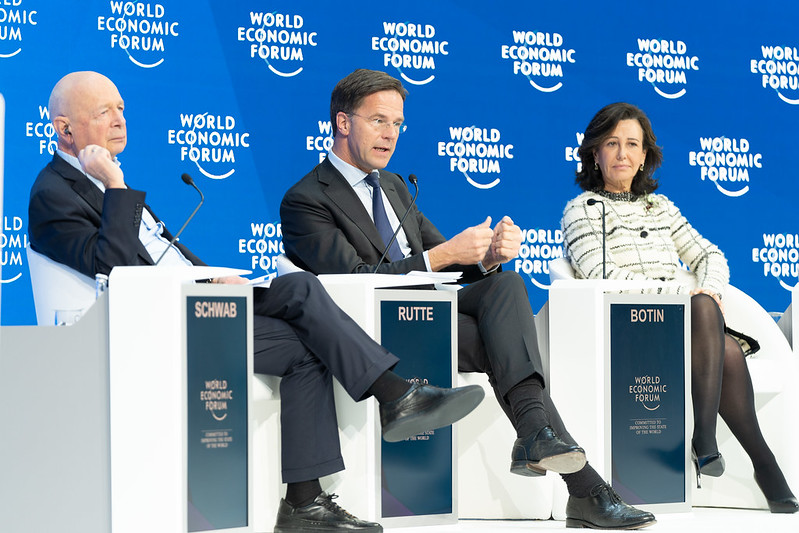
Klaus Schwab, Founder and Executive Chairman, World Economic Forum, Mark Rutte, Prime Minister of the Netherlands, Office of the Prime Minister of the Netherlands, Ana Botín, Group Executive Chairman, Banco Santander SA, captured during the Session “The New Impetus for Europe” at the Annual Meeting 2019 of the World Economic Forum in Davos, January 24, 2019. Congress Centre – Congress Hall.Copyright by World Economic Forum / Sikarin Fon Thanachaiary
At the Institute for Political Economy, Paul Craig Roberts raises the alarm over the ownership of assets, and what might happen in the next financial collapse. He writes:
Klaus Schwab tells us that in the Great Reset that the World Economic Forum is preparing for us “you will own nothing and you will be happy.” Well, we already own nothing. Our bank deposits and stocks and bonds, in the event the depository institution gets into trouble, belong to the depository institution’s creditors, not to us. All assets are pooled and serve as collateral whether or not labeled “segregated.”
You might remember that during the last financial crisis we were told that there would be no more bail-outs, that in the future there would be bail-ins. A bail-out is when central bank money creation rescues the favored troubled financial institutions. A bail-in is when the depositors’ assets are used for the rescues.
David Rogers Webb, an experienced financial market participant, explains it in The Great Taking in 72 readable pages plus a 25-page prologue explaining who he is and a 20-page reply of the New York Fed to the European Commission Legal Certainty Group’s questions. The Great Taking is available from Lulu for $10 and is free online.
The loss of property rights in financial assets is the case throughout the Western world. The rewrite of financial property rights appears to be the work of regulatory bodies, not legislatures which seem to be unaware of it.
No, it is not a conspiracy theory. Regulatory authorities have made legal changes of which financial market participants are unaware. Webb’s purpose is to bring awareness, which is why he has made his book freely available.
As a result of these changes, which appear to have been made by financial regulatory authorities rather than by elected legislatures, individuals no longer have property rights in “their” securities. “Owners” now have “entitlement rights,” which means that they have pro-rata rights to whatever securities remain in the depository institution after secured creditors’ claims are met. In actual fact, “your” securities and your bank deposits are no longer recognized in law as your personal property if the depository institution–the bank or, for example, Merrill Lynch–becomes financially troubled. Your “ownership” is encumbered as collateral for secured creditors who are the owners in fact. Apparently, this was done by regulatory authorities as underpinning for the derivatives complex, which is many magnitudes greater than world GNP, or perhaps derivative exposure served as an excuse for setting up the Great Reset in which “you will own nothing.” Indeed, individual banks among the world’s largest have derivative exposure the size of world GDP.
Read more here.
If you’re willing to fight for Main Street America, click here to sign up for my free weekly email.





